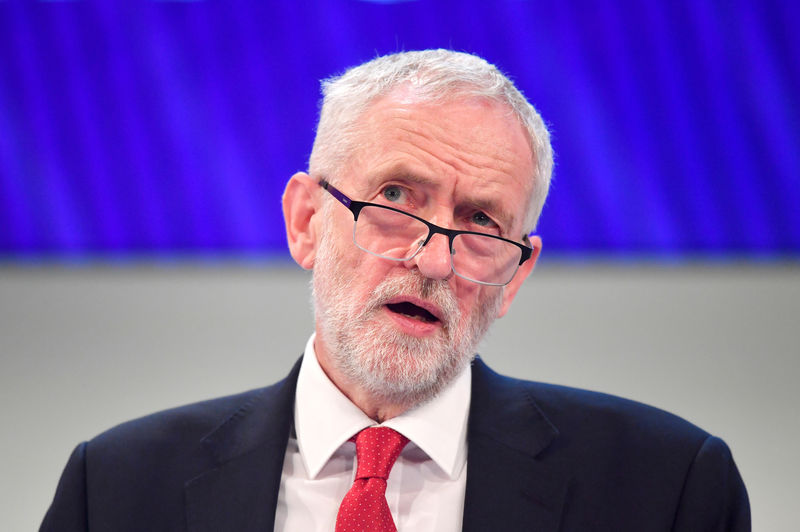LONDON (Reuters) - Britain's opposition leader Jeremy Corbyn would push ahead with Brexit and seek to renegotiate the terms if he won a snap election next year, he said on Saturday, in a blow to party supporters who want a second referendum.
Like much of Britain, Corbyn's Labour party is deeply divided over Brexit, with some senior lawmakers leading calls for a fresh vote and others representing areas that recorded the highest support for leaving the European Union in the 2016 plebiscite.
Corbyn, a Socialist with little passion for the EU, has been reluctant to support a second referendum, or People's Vote, but with less than 100 days to go until Brexit the clamour is growing for either a delay or a second vote to prevent Britain leaving without a deal.
"You'd have to go back and negotiate, and see what the timetable would be," the 69-year-old told the Guardian newspaper, when asked what he would do if he won an early election designed to break the deadlock in parliament.
Asked what stance Labour would take if a referendum were held, Corbyn said: "it would be a matter for the party to decide what the policy would be; but my proposal at this moment is that we go forward, trying to get a customs union with the EU, in which we would be able to be proper trading partners."
Britain is due to leave the EU on March 29. Prime Minister Theresa May has struck a withdrawal agreement with Brussels but was forced to pull a parliamentary vote on it last week after admitting she would lose by a large margin.
A new election is not due until 2022 but one could be called if May fails to get her primary policy through parliament.
Labour wants a permanent customs union with the EU and a close relationship with its lucrative single market. The policy has been dubbed "constructive ambiguity" by some, who question whether Labour could negotiate a better deal.
Critics argue that Corbyn has been happy to go along with the policy as long as the vote to leave the bloc is respected.
He told the Guardian he still had concerns about EU rules on state aid, and that he had to balance the views of all those in the party and understand why so many voted to leave the world's biggest trading bloc.

He said his plan for a customs union with the EU, to protect trade and access to the market, was designed to do just that.